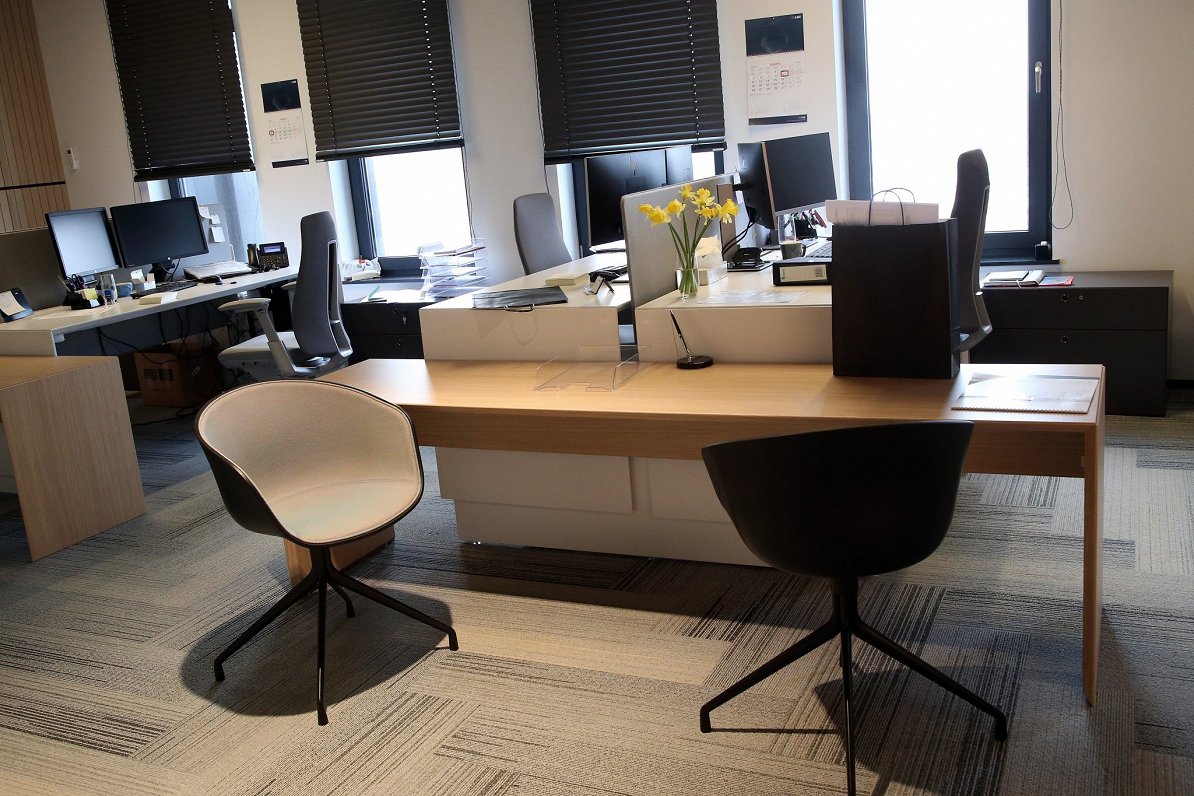Although the war in Ukraine, the increase in energy resources, and construction costs have stopped plans for some office developers, the construction of offices in Rīga is continuing. The real estate and investment company's Colliers partner in Latvia, Ēriks Bergmanis, said the changes in the market were also brought about by the pandemic.
“The area that a company would like to use for its own needs was reduced by 20-30%, but the functionality changed. If formerly there were so-called open-plan offices where people sat in one large room, it is now more of a conversation room where people can socialize. And it is primarily intended for people to have the opportunity and interest to return to the office, because it is important for the company to communicate not only remotely or in a digital environment, but to come to work, meet and speak in person,” Bergmanis said.
However, a survey conducted by Kantar shows that a third of Latvia's population is already working remotely or in hybrid mode. Arta Biruma, board member of the staff management company Eiro Personāls, said similar trends are observed worldwide, and changes in the working environment will take place.
"A very small percentage of people want to go back to the office full-time, and a relatively small percentage wants to work fully at home. The employers will be forced to think about how to sort out the working environment to ensure this flexibility, that everyone at the same time is not at work, that you don't have your own work station, but that you come and work in the free [spot]. People have to change their habits, and there are managers who may not want to change their habits and the employees resist, they also do not want to change their habits," Biruma said.
Is the risk that office buildings will remain empty not too high? Chairman of the Latvian Real Estate Transactions Association Aigars Šmits estimated that risks are always present in real estate.
"It's a business venture. Maybe someone will file for insolvency in principle, and maybe cheap offices will appear on the market. Because the profitability of the business must be high enough at the moment, because the rents for these new offices are not very low, they are from some EUR 15 and up per square meter. The trend may be to work from home right now, but these trends tend to change. Because, to compare to the apartment market – working from home is cool, but people look for a workplace [in a bigger apartment]. It's [now] quite the opposite again, people are shifting to smaller housing because of the expensive energy resources. And, I think there will be a pretty identical or similar situation for offices, too," Šmits said.
Arta Biruta said that the new offices could also be useful for employees of ministries and other public authorities.
“I think the new offices won't remain empty, but the old buildings are at risk without conditioning and various other modern options. Because looking at a public administration that is now actively thinking about not [resource economy], they will certainly look for rooms [of] a smaller area, [or] where climate controls are adjustable. If there is a big offer, then there will be good prices, you will be able to get Class A offices at a good price, so demand for lower class offices will drop,” Biruma said.






























